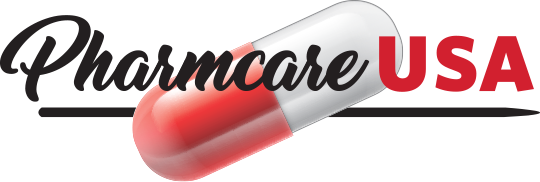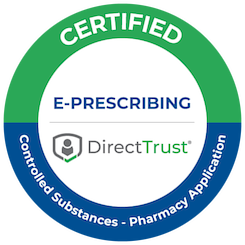Medication management in assisted living facilities is a critical aspect of providing quality care to residents. It involves a complex process of prescribing, dispensing, administering, and monitoring medication usage. The goal is to ensure the right patient receives the right medication, at the right dose and time, while minimizing potential adverse effects.
Due to the aging population and the increase in chronic illnesses, the number of medications administered in assisted living facilities is on the rise. The complexity of medication regimes often leads to errors, posing significant health risks to residents. These errors can result from miscommunication, insufficient knowledge, or systemic problems, such as inadequate staffing or lack of a comprehensive medication management plan.
A reliable and efficient medication management system is crucial in reducing these errors and improving patient outcomes. By using technology to streamline the process, healthcare professionals can focus more on patient care, leading to better quality of life for residents.
The Importance of Medication Management in Long Term Care
Medication management plays a vital role in long term care, particularly in nursing homes where residents often have multiple chronic conditions. These individuals require complex medication regimes, making them more susceptible to medication errors and adverse drug reactions.
Effective medication management in long term care involves more than just administering the right drug at the right time. It requires a comprehensive approach that includes assessing the resident’s overall health status, identifying potential drug interactions, and monitoring the effectiveness of the treatment. This approach ensures the safe and effective use of medications, enhancing the resident’s quality of life.
In addition, a robust medication management system can significantly reduce healthcare costs. By minimizing medication errors and adverse drug reactions, nursing homes can avoid unnecessary hospital admissions and medical interventions. Therefore, investing in medication management is not only beneficial for residents but also economically advantageous for the facility.
An Introduction to Medication Management Software
Medication management software is an innovative solution designed to streamline the medication management process in healthcare settings, including assisted living facilities and nursing homes. This software allows for the digitalization of medication administration records (MARs), which significantly reduces the risk of errors associated with manual record keeping.
The software also provides real-time updates on medication administration, ensuring that all healthcare staff are aware of the patient’s current medication regime. This feature is particularly beneficial in situations where multiple healthcare providers are involved in the care of a single resident.
Moreover, medication management software often includes a decision support system that alerts healthcare providers of potential drug interactions or allergies. This feature assists in the safe prescribing and administration of medications, enhancing the quality of care provided to residents.
Key Features of Medication Management Software
Medication management software comes with several key features that enhance the efficiency and safety of medication administration in assisted living facilities. One of these features is the electronic medication administration record (eMAR), which automates the documentation process, reducing the risk of errors associated with manual record-keeping.
Another essential feature is the medication reconciliation tool, which compares the resident’s current medication list with the medications prescribed by healthcare providers. This tool helps to identify any discrepancies, ensuring that all prescribed medications are correctly administered.
Additionally, many medication management software systems offer a decision support system that alerts healthcare providers of potential drug interactions, allergies, or contraindications. This feature assists in preventing adverse drug events, improving patient safety.
The software also often includes advanced reporting capabilities, allowing healthcare providers to generate comprehensive reports on medication usage, adherence, and outcomes. This feature is beneficial for monitoring the effectiveness of the medication management process and identifying areas for improvement.
Exploring the Leading Medication Management Software: LinkRx
LinkRx is a leading medication management software widely used in assisted living facilities and nursing homes. It is designed to enhance the efficiency and safety of medication administration, improving patient outcomes.
One of the standout features of LinkRx is its intuitive user interface, which simplifies the medication administration process. Healthcare providers can easily access and update resident’s medication records, ensuring accurate and timely medication administration.
LinkRx also offers a comprehensive decision support system that alerts healthcare providers of potential drug interactions, allergies, or contraindications. This feature assists in preventing adverse drug events, enhancing patient safety.
Moreover, LinkRx provides advanced reporting capabilities, allowing healthcare providers to generate detailed reports on medication usage, adherence, and outcomes. These reports can be used for quality improvement initiatives, ensuring continuous enhancement of the medication management process.
How Pharmcare USA Enhances Medication Management in Nursing Homes
Pharmcare USA is a leading provider of pharmacy services for assisted living facilities and nursing homes. They offer a comprehensive medication management solution, including the provision of medication management software.
Pharmcare USA partners with OmegaCare, a renowned software provider, to offer a robust medication management software. This software streamlines the medication administration process, reducing the risk of errors and improving patient safety.
In addition, Pharmcare USA provides ongoing training and support to healthcare providers, ensuring they are proficient in using the software. This support extends to troubleshooting and resolving any technical issues, ensuring uninterrupted medication administration.
Pharmcare USA also collaborates with healthcare providers to develop a personalized medication management plan for each resident. This plan takes into account the resident’s health status, medication regimen, and preferences, ensuring the safe and effective use of medications.
The Role of Integrations in Medication Management Software
Integrations play a crucial role in enhancing the functionality of medication management software. By integrating with other healthcare systems, such as electronic health records (EHRs) and pharmacy systems, the software can provide a comprehensive view of the resident’s health status and medication history. This integration allows for better coordination of care, improving patient outcomes.
Moreover, integrations can automate the medication ordering and dispensing process, enhancing efficiency. When a healthcare provider prescribes a medication, the order is automatically sent to the pharmacy, reducing the time and effort required to manually process the order.
Integrations can also enhance the decision support capabilities of the software. By accessing real-time data from various healthcare systems, the software can provide more accurate and timely alerts on potential drug interactions, allergies, or contraindications.
Case Study: The Impact of Medication Management Software in Modern Nursing Homes
The implementation of medication management software in modern nursing homes has led to significant improvements in patient safety and outcomes. A case study conducted in an assisted living facility revealed a 60% reduction in medication errors after the implementation of the software.
The software streamlined the medication administration process, reducing the workload of healthcare providers. This allowed them to focus more on patient care, enhancing the quality of life of residents.
Moreover, the software’s decision support system alerted healthcare providers of potential drug interactions and allergies, preventing adverse drug events. This feature enhanced patient safety, leading to fewer hospital admissions and medical interventions.
In addition, the software’s reporting capabilities allowed the facility to monitor the effectiveness of their medication management process and identify areas for improvement. This led to continuous enhancement of the process, further improving patient outcomes.
Choosing the Right Medication Management Software for Your Nursing Home
Choosing the right medication management software for your nursing home is crucial in enhancing the efficiency and safety of medication administration. When evaluating different software options, consider factors such as ease of use, integrations, decision support capabilities, and reporting capabilities.
Ensure the software offers an intuitive user interface, allowing healthcare providers to easily access and update medication records. The software should also integrate with other healthcare systems, such as EHRs and pharmacy systems, providing a comprehensive view of the resident’s health status and medication history.
The software’s decision support system should alert healthcare providers of potential drug interactions, allergies, or contraindications, enhancing patient safety. Moreover, the software should provide advanced reporting capabilities, allowing you to monitor the effectiveness of the medication management process.
It’s also important to consider the support offered by the software provider. Ensure they provide training and ongoing support to healthcare providers, ensuring they are proficient in using the software.
Conclusion: The Future of Medication Management in Assisted Living
The future of medication management in assisted living is promising, with advancements in technology leading to more efficient and safer medication administration processes. Medication management software will continue to play a critical role in this evolution, enhancing patient safety and outcomes.
As the population ages and the demand for long-term care increases, the need for effective medication management will continue to grow. By investing in medication management software, assisted living facilities can ensure they are well-equipped to meet this demand, providing quality care to their residents.
Pharmcare USA can help your Nursing Home and Assisted Living Facility with Medication Management Software from our Partners at OmegaCare. Schedule a call with our experienced Nursing Home Consultants.




